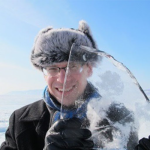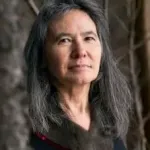Indigenous-led Strategies for Co-Productive and Convergent Arctic Research
There is increasing recognition of the need to ethically and equitably engage Indigenous Knowledge to address the pressing global challenges facing our planet and society. To support this goal, a collaborative team of Indigenous scholars and scientific researchers will create an innovative engagement process, designed and led by Arctic Indigenous Peoples, to inform the goals of the Fourth International Conference on Arctic Research Planning (ICARP IV). This decadal planning process, first held in 1995 at Dartmouth and culminating in a fourth conference in 2025 in Boulder, will set global research priorities for the Arctic region through 2035.
Initial planning activities will bring together Arctic Indigenous Knowledge holders to explore the practical implementation of utilizing Indigenous Knowledge in Arctic research efforts. The goal will be to consider short, medium, and long-term benefits of this approach for Arctic Peoples, science, and broader society and to identify strategic opportunities for implementation. Next, the project will support an Indigenous-led initiative to provide input into the ICARP IV process and the development of a mechanism that allows for ethical engagement of Indigenous Knowledge within Arctic research planning and implementation. The anticipated result is the development of more Indigenous-led strategies for researchers, universities, funders, and partner organizations in the Arctic. The aim is to actively support the stewardship of Indigenous Knowledge, as well as the rights and well-being of Arctic Indigenous peoples and communities. Finally, the project will synthesize lessons learned from leaders in Arctic co-production knowledge research, ongoing efforts and outcomes of co-produced research, and other institutional efforts that aim to be more inclusive of Indigenous Knowledge. It will also develop an evaluation framework to track and assess progress and impact of these efforts, applicable to both national and international Arctic research initiatives.


